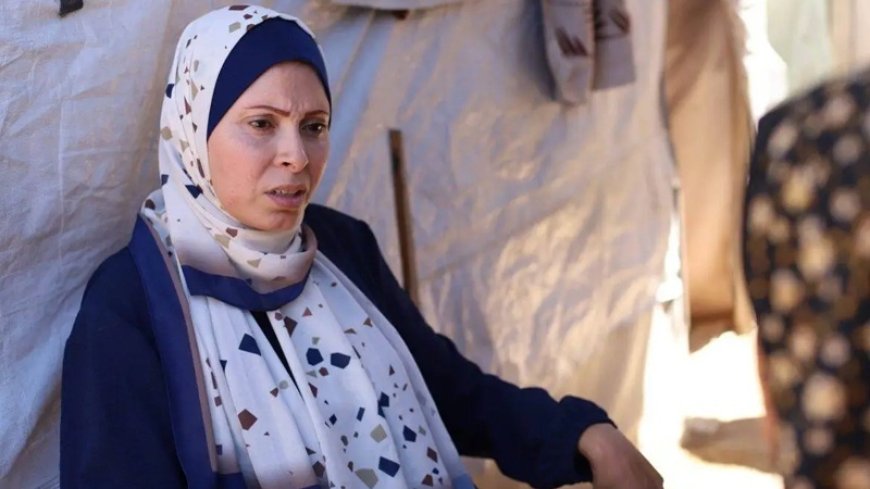Gaza's Winter of Despersion: A Mother's Battle Within Humanitarian Crisis
The suffering of displaced people gets terrible when winter blankets Gaza in its merciless cold. Survival is a daily fight for 39-year-old Fida Soboh, a mother of seven living in a makeshift tent following war displacement. Her narrative provides a glimpse into the larger humanitarian dilemma Gaza's refugee population faces, whereby basic needs like warmth and healthcare remain out of reach and frail shelters give minimal protection against the weather.

The suffering of displaced people gets terrible when winter blankets Gaza in its merciless cold. Survival is a daily fight for 39-year-old Fida Soboh, a mother of seven living in a makeshift tent following war displacement. Her narrative provides a glimpse into the larger humanitarian dilemma Gaza's refugee population faces, whereby basic needs like warmth and healthcare remain out of reach and frail shelters give minimal protection against the weather.
Originally from the village of Zahra, Fida's family now lives with the terrible reality of displacement. "The biggest challenge is keeping my children healthy," she says regretfully. "Their vulnerability to diseases is increased by the cold and wet weather; access to appropriate healthcare is rather limited." Her thin-based tent is not suited for frigid temperatures or heavy rain. Water leaks through, soaking beds and clothing; her children find cooking and homework to be difficult without heating.
Fida's fortitude, though, beyond the survival of her family. She suffers personally, but she works nonstop as an aid worker helping others in her neighborhood going through similar challenges. Her commitment is evidence of the attitude of Gaza's people, who bravely and determinedly face unthinkable difficulties.
A Crisis of Survival
The tale of Fida is not very unusual. One of 1.6 million Palestinians living in cramped refugee camps, she frequently builds improvised shelters from plastic and cloth. These flimsy homes offer little defense against the winter rains of Gaza, which have already caused extensive flooding. Recent days have seen hundreds of shelters buried beneath which families have been displaced once more and thrown into even more extreme hopelessness.
The severe winter of this year has already taken ten lives from cold; the situation looks to get worse. Restricted by Israeli blockades, aid deliveries still fall short to meet Gaza's mounting demands. Humanitarian groups worry that if these limits continue, more lives—especially those of vulnerable children—will be lost to avoidable causes such hypothermia and respiratory diseases.
The Load of Loss
For Fida, the death of her husband—who perished in an Israeli attack last year—adds to her suffering with exile. "Losing my husband left a massive emotional and practical void," she says. "He supported and steadied our life like a pillar. I have to now take on the very challenging position of both parents. Financially, his absence has left us particularly exposed.
Her loss is intertwined with a quiet strength, a will to keep on for her children's sake. "My emotions mix resistance with hope," she says. "Resistance to the suffering we endure and hope one day we can create a dignified and peaceful life."
A Request for Humanity's Plea
Fida's simple yet powerful message to the world is to see Gaza's people's humanity and intervene before it is too late. She begs: "I want the world to see us as human beings, not just statistics." Her comments reflect the general feeling of a people caught in a cycle of war, poverty, and neglect.
The situation in Gaza reminds us sharply of the human cost of protracted political paralysis as world attention remains split. Fida's battle is typical of a crisis calling for quick worldwide response. The misery of Gaza's people will keep getting worse without quick action to remove humanitarian limitations and supply sufficient supplies, so wasting more pointless lives.
This is a call to conscience for a society too frequently blindingly ignores, not only a narrative of one woman's resiliency. Survival is an act of resistance for Fida and many others just like her; their humanity merits respect, sympathy, and action.













































